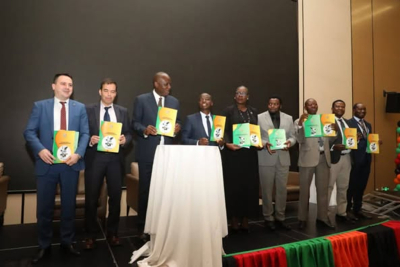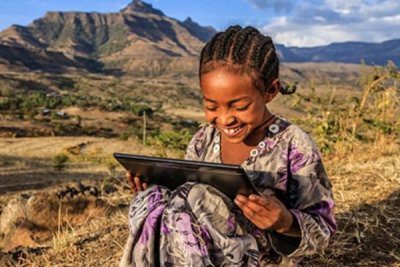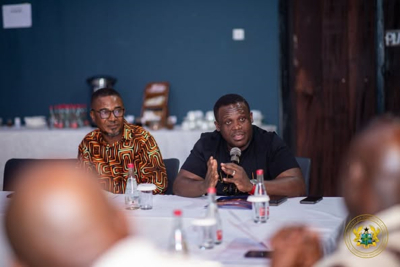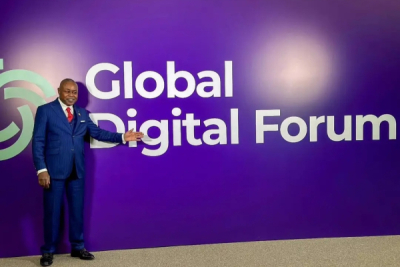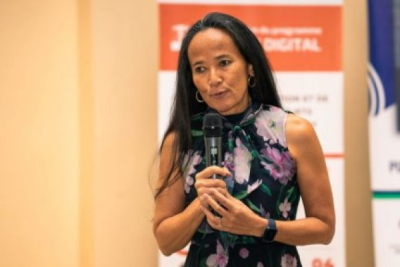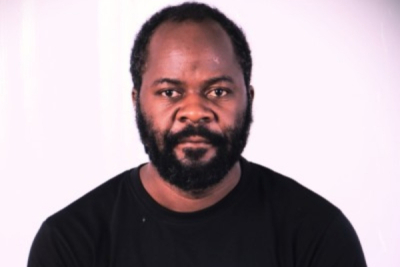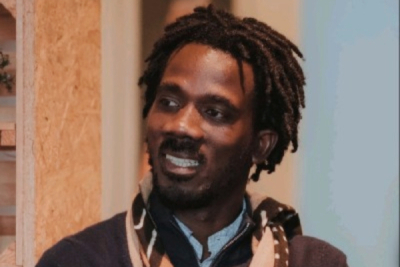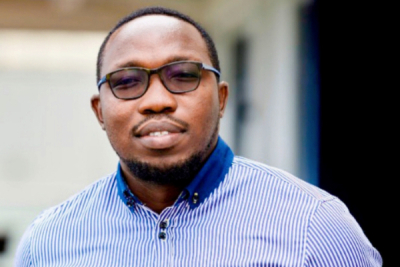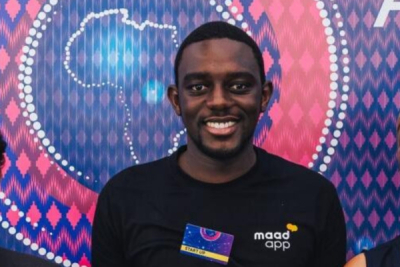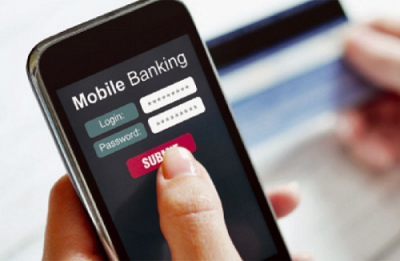The United Nations regards the Internet as a fundamental service, on par with electricity and clean drinking water. Aware of its role in Africa’s economic and social development, a call for widespread mobilization has been issued to boost investment.
Africa's internet penetration is growing at twice the global average, according to the International Telecommunication Union (ITU). Since 2005, the continent has seen an average annual growth rate of 16.7%, compared to the global average of 8%. Although this pace has slowed over the past decade to 10.7% annually versus 6.1% worldwide, Africa continues its sustained digital expansion. This rapid growth underscores a strong desire for digital integration, despite persistent deep divides compared to the rest of the world.
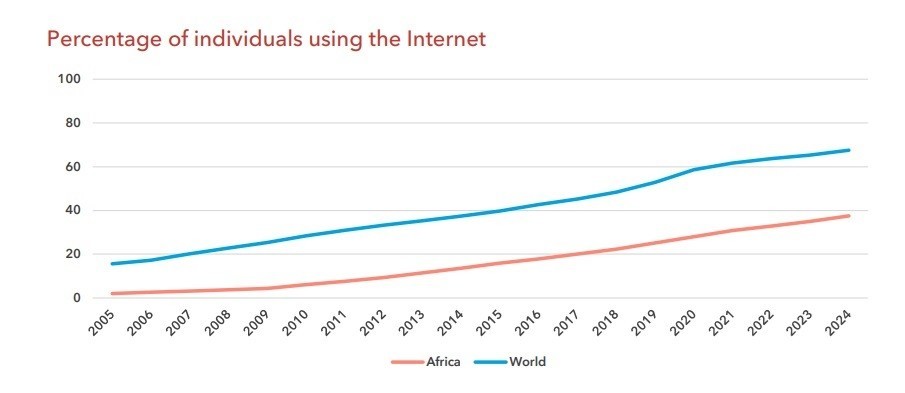
Source: ITU
In 2024, only 38% of the African population was connected to the internet, significantly less than the global average of 68%. This makes Africa the least connected region globally, emphasizing the structural and economic hurdles many African countries must overcome to ensure widespread and equitable access to digital technologies.
Gender Disparity
A notable inequality in Africa is the digital gender divide. In 2024, 43% of men used the internet compared to only 31% of women. This imbalance results in a Gender Parity Score (GPS) of 0.72, well below the global average of 0.94.
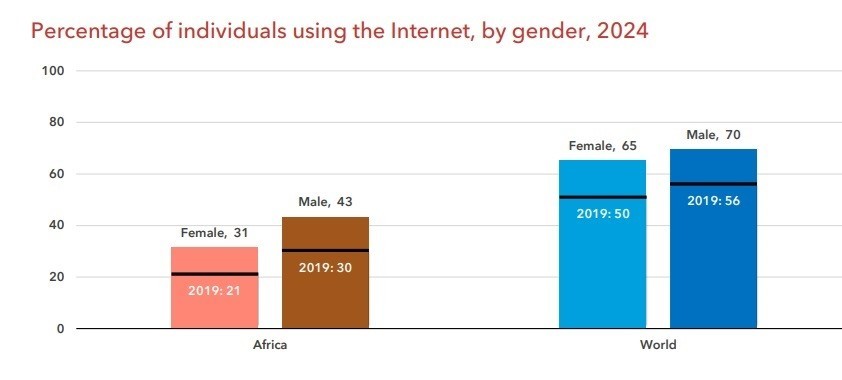
Source: ITU
While this trend shows improvement—the GPS has risen from 0.69 to 0.72 over the past five years—it remains insufficient to quickly reverse the structural underrepresentation of women in the digital sphere.
Age Divide
The digital divide in Africa also extends to generations. In 2024, 53% of young Africans aged 15 to 24 were connected to the internet, compared to 34% of the older population.
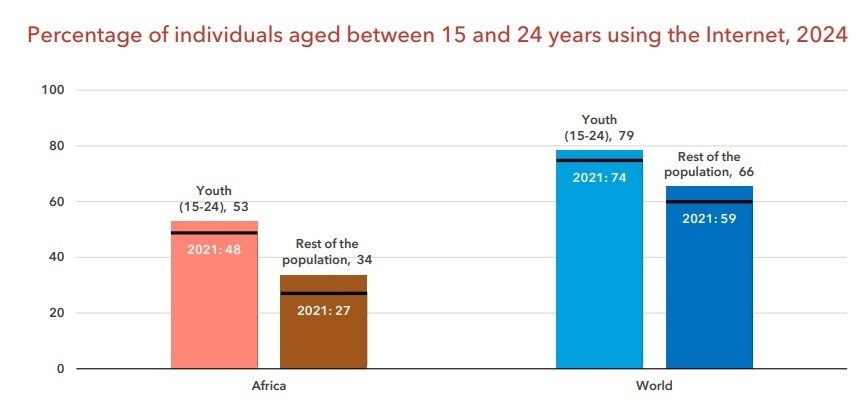
Source: ITU
This generational gap is more pronounced than the global average, though it is slowly narrowing. The ITU views young people's embrace of digital tools as a major asset for the continent's digital transformation. However, it also highlights the urgent need to expand access to older and marginalized populations to achieve truly universal digital inclusion.
Geographic Disparities
Internet connection distribution also reveals significant geographical fragmentation. In 2024, 57% of urban residents in Africa used the internet, whereas only 23% in rural areas had access. This 34-percentage point gap is comparable to the global average gap of about 35 points between urban (83%) and rural (48%) environments.
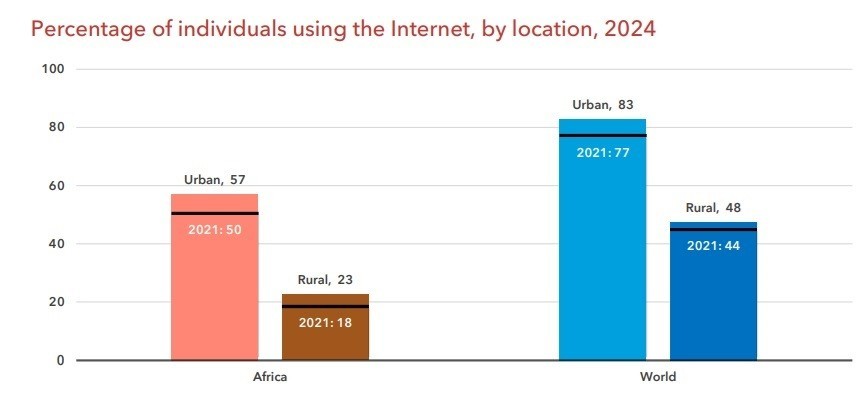
Source: ITU
Data from several African countries indicates a clear trend: higher overall internet penetration rates tend to correlate with smaller gaps between rural and urban areas. This suggests that targeted and sustained progress in infrastructure and public policy can reduce geographical inequalities.
A Call to Action
Given these pervasive disparities, it is clear that Africa cannot bridge its digital divide without collective and coordinated action. Investing in infrastructure, especially in rural and remote areas, is crucial for more equitable access to digital tools. Similarly, inclusive public policies that consider gender, age, and location must be systematically implemented to foster a fairer digital society.
Governments, telecom operators, NGOs, and development partners play a fundamental role in addressing the continent's many digital divides. While Africa continues to demonstrate above-average growth in internet access, this momentum requires structural measures to ensure it benefits all segments of the population without exception. In an increasingly digital world, digital exclusion equates to a form of social marginalization. Therefore, accelerating efforts for digital inclusion at all levels is imperative for Africa to fully capitalize on the opportunities presented by digital transformation.
Muriel EDJO




